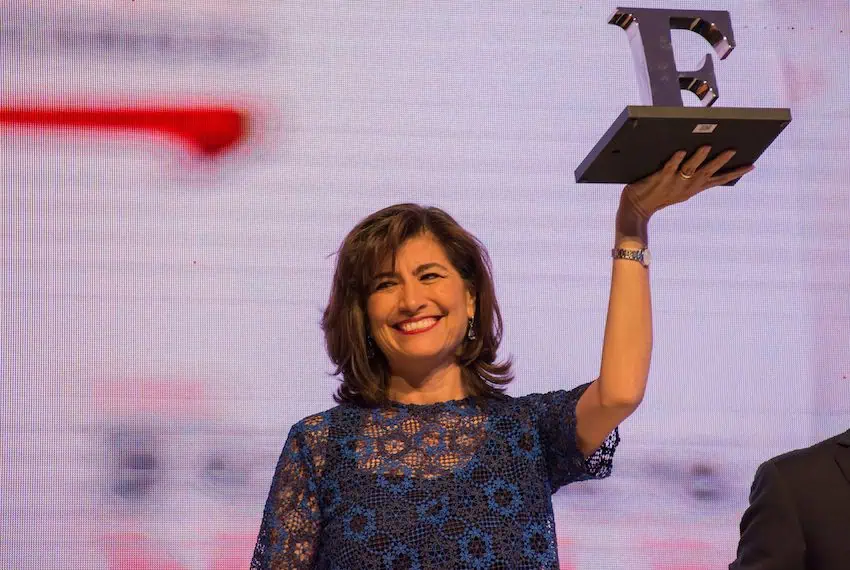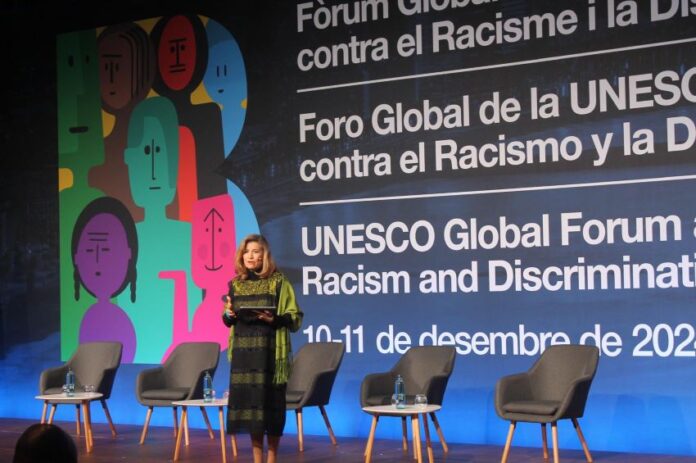Gabriela Ramos Patiño, a distinguished Mexican economist and diplomat, has emerged as one of three finalists to become the director-general of UNESCO after Audrey Azoulay’s second term expires in December.
With a career spanning decades in international organizations, Ramos is positioning herself as a transformative leader for UNESCO — formally the United Nations Educational, Scientific and Cultural Organization — as the agency moves beyond its 80th anniversary this year.

Responding to a 2024 request for nominations, Mexico put forward Ramos, a native of Michoacán who will turn 61 next Tuesday.
This week, a news report citing UNESCO sources revealed her to be a finalist alongside Egypt’s Khaled Ahmed El-Enany Ali Ezz, 54, a former minister of tourism and antiquities, and Firmin Edouard Matoko, 68, of the Republic of Congo, a longtime UNESCO officer.
After a campaign period that begins this month, UNESCO’s 58-member executive board — elected by member states every four years — will vote by secret ballot in October, with the winner to be announced in November. The new head will serve a four-year term with the possibility of one renewal.
As the highest-ranking official of UNESCO, the director-general oversees an organization that is known for its more than 1,100 World Heritage Sites worldwide, its global efforts to promote inclusive and equitable quality education and its safeguarding of cultural traditions.
Since 1945, there have been 10 UNESCO heads, including one Mexican: Jaime Torres Bodet, a Mexico City native who served as the agency’s second director-general from 1948 to 1952.
Azoulay, the current director-general, began her first term in 2018 and was re-elected in 2021. The 52-year-old Frenchwoman, who served as her country’s minister of culture in 2016 and 2017, is the second female leader of UNESCO.
Ramos, who has dedicated her career to advancing global cooperation and addressing pressing social challenges, is seeking to become the third.
She holds a degree in International Relations from Universidad Iberoamericana and a master’s degree in Public Policy from Harvard University’s John F. Kennedy School of Government.
Due to her strong academic showing, she was invited to join Mexico’s Foreign Affairs Ministry in 1988.
From there, she transitioned to international roles, including director of the Mexico City office for the Organization for Economic Cooperation and Development (OECD). It serves as a regional hub for Latin America and the Caribbean.
She then became director-general at OECD headquarters in Paris, and since 2020 has been UNESCO’s assistant director-general for social and human sciences, overseeing critical initiatives aimed at fostering inclusive societies.
Her portfolio includes addressing economic inequality, promoting gender equality, combating racism and advancing the ethics of emerging technologies such as artificial intelligence.
Notably, she spearheaded the adoption of UNESCO’s first global framework on AI ethics in 2021 and launched the Global Forum Against Racism.
Ramos’ candidacy comes at a pivotal moment for UNESCO, which is facing what she called an “era of conflict and polarization.”

She has advocated for a “stronger, more inclusive and more innovative” organization to restore trust in multilateralism.
“Solidarity is also waning, and development cooperation is suffering,” Ramos said. “We are not on track to meet international commitments made in the past, with disastrous consequences for people and the planet.”
“We are failing to close the inequality gaps that are eroding our societies and democracies.”
Her vision aligns with her extensive experience at the OECD, where she led initiatives on inclusive growth, climate change and gender equity.
Among her achievements are reforms to tax systems through the G20, the establishment of gender quotas to reduce labor disparities and the creation of the W20 platform (as part of the G20) for women’s empowerment.
She has received numerous accolades for her work on gender equality and social inclusion, including France’s Order of Merit.
With reports from Milenio, El Financiero and Forbes
